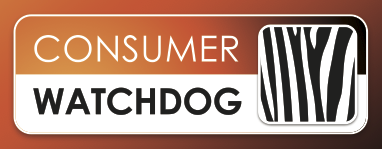Like everyone else I can’t help thinking about independence. Today, more than any other day, I can’t get this out of my head.
I don’t just mean the history of our country, we all know about that, I mean about just how independent we really are, both as a nation and as consumers. Are we truly independent?
In many respects we are. One of the things that first struck me when I started looking at the various laws that protect us as consumers was how well protected we are. The Consumer Protection Act and Regulations offer us a wide range of weapons to defend ourselves. When supporting consumers, we probably mention one or more of the Regulations at least every day.
The Control of Goods Act and then the subsequent, and horribly named, Control of Goods Act (Marking of Goods) Regulations were remarkably useful. It’s those Regulations that say that when goods are offered for sale on credit or any form of “deferred payment” that any advertisement must disclose “the total amount to be paid”. When we started Consumer Watchdog all those years ago this rule was ignored by ALL the stores. All of them. All they mentioned was the value of the instalments you had to make and how many months the torture would last for.
We contacted all of the stores and explained this to them. To be fair, some of them were very apologetic and promised to fix it as soon as possible and they did actually do so. A few were a little more reluctant. One country manager even excused his company by saying that they “abide by South African law”.
Well that’s nice. Honestly, it’s very nice when South African companies abide by South African law. But only when they’re in South Africa. In Botswana we abide by the laws of Botswana. That company seemed to think we were a South African dependency, maybe the tenth province. They didn’t think we were independent. They soon corrected their perception when we started announcing which companies chose to recognize our independence. And those that didn’t.
It’s a similar situation with prices. We’ve had so many people contact us over the last few years complaining about the common one-to-one Rand-Pula pricing practice. So many South African chains sell products in Botswana for the same number of currency units as they do in SA. Something sold in SA for R50 is sold for P50 here. Given that the Rand:Pula exchange rate is currently about 1.3, a R50 item should sell in Botswana for about P38.
In fact, this was such an issue that in December last year, the Ministry of Trade and Industry had a justifiable tantrum and told South African companies to stop it. They said that it was an “unfair trade practice whereby the Pula/ Rand exchange rate differential is not passed onto the consumer. Therefore businesses that are practicing this are advised to stop forthwith and failure to do so may result in their trade licenses being reviewed, which may lead to their suspension or cancellation”. They advised the public “not to accept paying for merchandise that is priced in the Rand or any foreign currency other than the Pula.”
A few months later that message was reiterated by none other than the President himself. From the highest level, the message is clear. We are an independent, sovereign nation that has its own rules and standards. We are not dependent on the charity of other nations and we do not deserve to be abused.
From another perspective we’re not even slightly independent. Whether the people who oppose globalization like it or not, we live in an enormously connected world. When I add an appointment to the calendar app on my phone it automatically wirelessly syncs with the calendar on my laptop. This is all done on a computer server somewhere in the world and I genuinely don’t know where that server might be. But I know it’s not in Botswana. My everyday life is reliant on the so-called cloud computing model that is a great example of how life is now global. The same goes for the Gmail, Yahoo or Hotmail email address you use, your email is stored somewhere far, far away, not in Botswana.
But this international dependency is the nature of existing in the 21st century and my personal view is that it’s a wonderful thing. It offers us tools that are genuinely useful.
We’re also obviously dependent on the rest of the world for almost all the food we eat, the beer we consume to excess and even some of the specialist professional skills we need.
But we’re not entirely dependent. At the Consumer Watchdog Conference at the GICC in Gaborone in just a few days time, we’ll have a range of speakers and specialists running in-depth workshops and every one of them is living and working in Botswana right now, today. Not one of them is flying in to Botswana to deliver their speech or their skills and that’s deliberate. One of the things we’re trying to achieve at the conference is to show that even though we live in an interconnected, globalized world, we already have all the necessary skills in Botswana to deliver the very best customer service.
I think the challenge we face is to combine the welcome dependency we have on the globalized world and our righteous desire to be treated as an independent nation. The good news is the people who’ve spoken at our conference over the last few years and the speakers this year are proof, if you need it, that in Botswana we have business leaders and thinkers who can easily face that challenge and overcome it.
So what about you? Are you prepared to defend our independence?

No comments:
Post a Comment